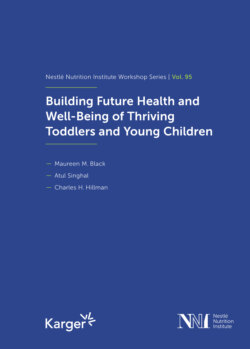Читать книгу Building Future Health and Well-Being of Thriving Toddlers and Young Children - Группа авторов - Страница 17
На сайте Литреса книга снята с продажи.
Language
ОглавлениеToddlers’ language skills increase along with their advancing cognitive skills. Toddlers in multilingual settings learn to understand and speak multiple languages, and most toddlers are speaking in sentences that can be understood by nonfamily members by age 3 years. Toddlers also use their language skills to engage in pretend play, often re-enacting situations that they observe in daily life. Their ability to use symbols and imagination to engage in pretend play enables toddlers to re-enact household issues or to practice make-believe interactions with others.
Advances in language include both the number of words that children understand and speak and also complex language-specific structures. Children benefit from language-rich environments, based on contingent language in which caregivers talk about what the toddler is experiencing, and build reading into daily routines. Dialogic reading, with books becoming a stimulus for turn-taking conversations between toddlers and caregivers, has been shown to promote literacy in multiple countries [11]. Dialogic reading is the basis of Reach Out and Read, a program that has been implemented globally in homes (www.reachoutandread.org).
